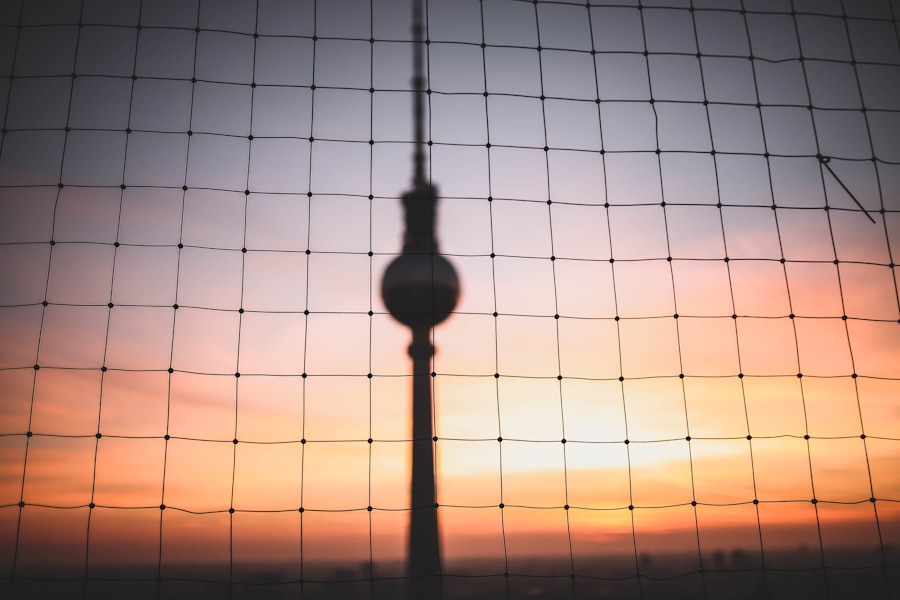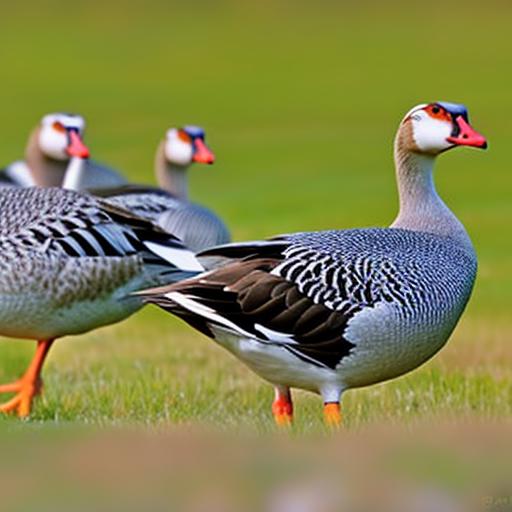Keeping geese for security purposes is a practice that has been used for centuries. Geese are known for their loud and aggressive nature, making them excellent guard animals. They have a natural instinct to protect their territory and can distinguish between friend and foe. In my personal experience, I have found geese to be highly effective in deterring intruders and providing an added layer of security to my property.
Key Takeaways
- Keeping geese for security is a unique and effective way to protect your property.
- Geese are naturally territorial and have excellent hearing and vision, making them great guard animals.
- The breed of geese you choose should be based on their temperament, size, and noise level.
- A secure enclosure with proper fencing and shelter is essential for keeping your geese safe and happy.
- Training your geese to recognize and alert to potential threats is crucial for their effectiveness as guard animals.
Why Geese are Effective Guard Animals
Geese have several characteristics that make them effective guard animals. Firstly, they have natural instincts and behaviors that make them highly alert and protective. Geese are territorial animals and will defend their space vigorously. They have excellent eyesight and can detect movement from a distance, making them highly effective at spotting potential threats.
Secondly, geese are known for their loud and aggressive nature. They have a distinctive honk that can be heard from a considerable distance. This loud noise serves as a deterrent to intruders, as it alerts both the property owner and neighbors to the presence of a potential threat. Additionally, geese are not afraid to confront intruders physically, using their wings and beaks to intimidate and attack.
Lastly, geese have the ability to distinguish between friend and foe. Once they become familiar with their surroundings and the people who belong there, they will not react aggressively towards them. This makes them an ideal guard animal, as they can differentiate between a stranger and someone who is authorized to be on the property.
Choosing the Right Breed of Geese for Security
When choosing geese for security purposes, there are several popular breeds to consider. The most common breeds used for security are Toulouse, Embden, and Chinese geese. These breeds are known for their large size, which adds to their intimidating presence.
When selecting a breed, it is important to consider certain characteristics. Look for geese that are known for their protective instincts and aggression towards intruders. Additionally, consider the climate and environment in which you live. Some breeds are better suited to colder climates, while others thrive in warmer regions.
Personal preference and location considerations should also be taken into account. Some breeds may be more suitable for urban areas, while others may be better suited for rural properties. It is important to research and choose a breed that aligns with your specific needs and circumstances.
Setting Up a Secure Enclosure for Your Geese
Creating a secure enclosure for your geese is essential to their safety and effectiveness as guard animals. Geese require a large area to roam and graze, but it is important to ensure that the enclosure is predator-proof.
When constructing the enclosure, consider using materials such as chain-link fencing or welded wire mesh. These materials are sturdy and can withstand the force of a determined predator. Additionally, make sure the fencing is buried at least a foot into the ground to prevent predators from digging underneath.
Design options for the enclosure can vary depending on personal preference and available space. Some people opt for a traditional rectangular shape, while others may choose a circular or irregular shape. It is important to provide ample space for the geese to move around and access water sources.
Predator-proofing the enclosure is crucial to ensure the safety of your geese. This can be done by adding additional layers of fencing or wire mesh to prevent predators from gaining access. Additionally, consider installing motion-activated lights or alarms to further deter potential threats.
Training Your Geese for Security Duties
Training your geese for security duties is an important step in maximizing their effectiveness as guard animals. Basic obedience training is essential to establish boundaries and reinforce protective behaviors.
Start by teaching your geese basic commands such as “come” and “stay.” Use positive reinforcement techniques such as treats or praise to reward desired behaviors. It is important to be consistent and patient during the training process, as geese can be stubborn at times.
Introduce your geese to their surroundings gradually, allowing them to become familiar with the property and any potential threats. Take them on regular walks around the perimeter of the property, allowing them to become accustomed to different sights and sounds. This will help them develop a sense of territory and become more alert to potential intruders.
Reinforce protective behaviors by praising and rewarding your geese when they exhibit aggression towards potential threats. This will help them understand that their protective instincts are valued and encouraged. Regular training sessions and reinforcement of these behaviors will ensure that your geese are always on guard and ready to protect your property.
Feeding and Caring for Your Geese

Proper feeding and care are essential for the health and well-being of your geese. Geese have specific nutritional needs that must be met in order for them to thrive.
A balanced diet for geese should consist of a combination of grass, grains, and water. They require access to fresh water at all times, as well as a constant supply of grass or pasture for grazing. Additionally, supplement their diet with grains such as corn or wheat to provide additional nutrients.
In terms of daily care, geese require regular grooming and maintenance. This includes trimming their wings to prevent them from flying away, as well as regular cleaning of their enclosure to maintain hygiene. It is also important to monitor their health and watch for any signs of illness or injury.
Common health concerns for geese include respiratory infections, parasites, and foot problems. Regular veterinary check-ups and vaccinations are recommended to ensure the overall health of your geese. Additionally, provide them with a clean and comfortable nesting area where they can lay eggs and rest.
Integrating Geese into Your Existing Security System
Geese can be integrated into an existing security system to provide an added layer of protection. They can work alongside other guard animals such as dogs or alarms to create a multi-species approach to security.
When working with other guard animals, it is important to introduce them gradually and monitor their interactions. Allow the animals to become familiar with each other’s presence and establish a hierarchy. This will help prevent any potential conflicts or aggression between the animals.
Incorporating geese into a larger security plan can involve strategically placing them in areas where they are most likely to encounter potential threats. This could include positioning them near entrances or areas where intruders are likely to approach. Geese can act as an early warning system, alerting other guard animals or triggering alarms when they detect a potential threat.
The benefits of a multi-species approach to security are numerous. Each animal has its own unique set of skills and instincts, which can complement and enhance the effectiveness of the overall security system. Geese, with their loud honking and aggressive nature, can provide an additional deterrent to potential intruders.
Potential Risks and Challenges of Keeping Geese for Security
While keeping geese for security purposes can be highly effective, there are some potential risks and challenges to consider. One of the main risks is aggressive behavior towards humans. Geese can become territorial and may attack humans if they feel threatened. It is important to establish boundaries and ensure that anyone entering the property is aware of the presence of geese.
Another challenge is noise complaints from neighbors. Geese are known for their loud honking, which can be disruptive to those living nearby. It is important to consider the proximity of neighbors when deciding to keep geese for security and take steps to minimize any potential disturbances.
Maintenance and upkeep of the enclosure can also be a challenge. Geese require a large area to roam and graze, which means regular cleaning and maintenance of the enclosure. Additionally, predator-proofing the enclosure may require ongoing repairs and upgrades to ensure the safety of the geese.
Legal Considerations for Keeping Geese as Guard Animals
Before keeping geese for security purposes, it is important to research and understand the local laws and regulations regarding the ownership of geese. Some areas may have restrictions on the number of geese that can be kept or specific requirements for their enclosure.
Liability concerns should also be taken into consideration. Geese have the potential to cause harm to humans, especially if they feel threatened or are protecting their territory. It is important to have appropriate insurance coverage in place to protect against any potential legal claims.
Is Keeping Geese for Security Right for You?
In conclusion, keeping geese for security purposes can be an effective and unique way to enhance the safety of your property. Geese have natural instincts and behaviors that make them highly alert and protective. They are loud and aggressive, which serves as a deterrent to potential intruders. Additionally, geese can be integrated into an existing security system to provide an added layer of protection.
However, it is important to carefully consider the potential risks and challenges associated with keeping geese for security. Aggressive behavior towards humans, noise complaints from neighbors, and maintenance of the enclosure are all factors that should be taken into account.
Before making a decision, it is recommended to do further research and consult with experts in the field. Each property and situation is unique, and what works for one person may not work for another. By making an informed decision and taking appropriate precautions, keeping geese for security can be a rewarding and effective choice.
If you’re considering keeping geese for security purposes, you may also be interested in learning about the ideal chicken coop interior ideas and the appropriate size a coop needs to be for chickens. These articles from Poultry Wizard provide valuable insights into creating a comfortable and functional living space for your feathered friends. Additionally, if you’re wondering whether geese can eat chicken feed, this informative article will answer all your questions. Check out these helpful resources to ensure the well-being of your poultry.
FAQs
What are geese?
Geese are waterfowl birds that are commonly found in many parts of the world. They are known for their loud honking calls and their ability to fly long distances.
How can geese be used for security?
Geese are known for their aggressive behavior and their loud honking calls, which can be used to deter intruders and alert their owners to potential threats. They are also highly territorial and will defend their territory against any perceived threats.
What are the benefits of using geese for security?
Using geese for security can be a cost-effective and environmentally friendly way to protect your property. They require minimal care and can be trained to recognize and respond to potential threats. They are also highly effective at deterring intruders and can provide an early warning system for potential threats.
What are the drawbacks of using geese for security?
Geese can be noisy and messy, which may not be suitable for all environments. They also require adequate space to roam and access to water, which may not be available in all locations. Additionally, they may not be suitable for households with small children or pets, as they can be aggressive towards other animals.
How do you train geese for security?
Geese can be trained to recognize and respond to potential threats through positive reinforcement and repetition. This can include rewarding them for honking when they see a potential threat or training them to recognize specific sounds or movements that may indicate a threat.
What are some tips for keeping geese for security?
Some tips for keeping geese for security include providing them with adequate space and access to water, training them to recognize and respond to potential threats, and providing them with a safe and secure environment. It is also important to be aware of local regulations and laws regarding the keeping of geese.
Meet Walter, the feathered-friend fanatic of Florida! Nestled in the sunshine state, Walter struts through life with his feathered companions, clucking his way to happiness. With a coop that’s fancier than a five-star hotel, he’s the Don Juan of the chicken world. When he’s not teaching his hens to do the cha-cha, you’ll find him in a heated debate with his prized rooster, Sir Clucks-a-Lot. Walter’s poultry passion is no yolk; he’s the sunny-side-up guy you never knew you needed in your flock of friends!







